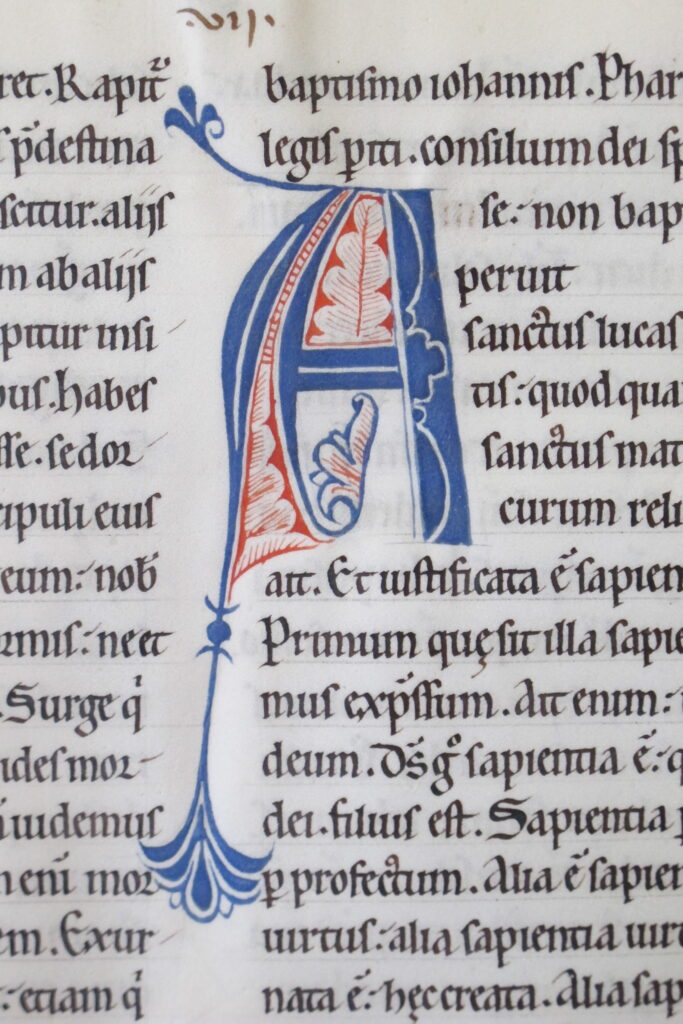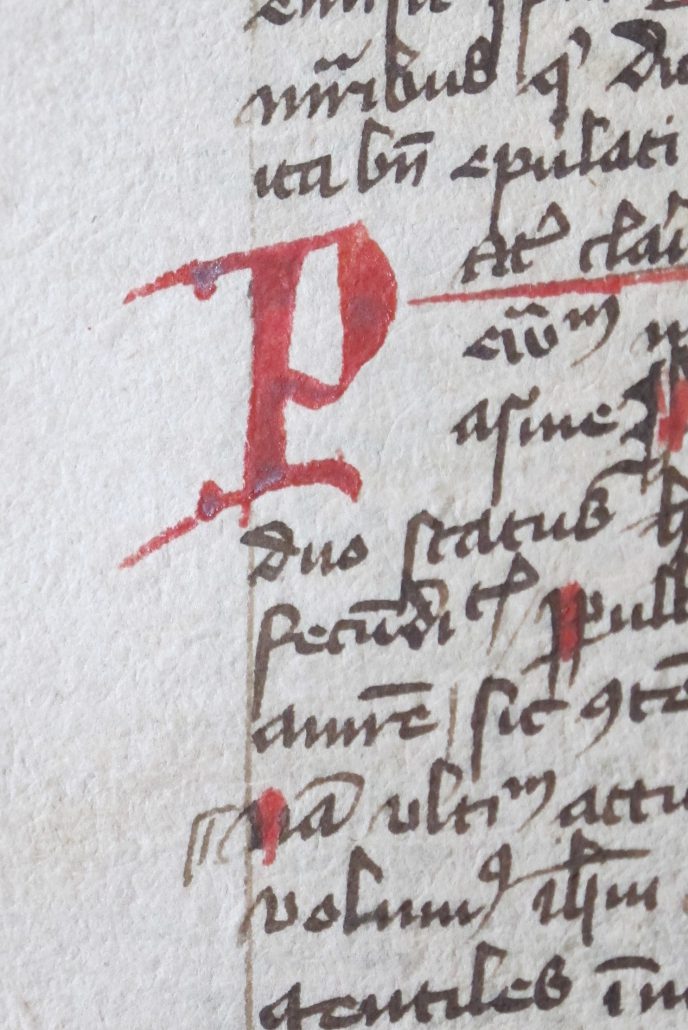Mark McKillion, Ulster University MA History graduate and volunteer for the Library in 2022, carried out research on the St Ambrose’s Incipit Commentarius Sci Ambrosii Epi Super Lucam = Commentary on The Gospel of Luke (1200-1300) (object ID P001941565).
You can adopt this manuscript for £1,000, and support the work of the Library, caring for our wonderful collections, and inspiring present and future generations!
The structure of the Gospel of Luke is laid out in detail by Ernest D. Burton in his thesis, The Purpose and Plan of the Gospel of Luke, where he highlights the text’s preface, which is directed towards a figure known as Theophilus: while this person’s exact identity is unknown, Burton suggests that Luke’s intent was to relay the story of the life and death of Jesus Christ to a wider audience, which he would achieve by compiling and interpreting older gospel writings and accounts by various “eyewitnesses and ministers of the word” to form a single, unified narrative.[1]
Furthermore, Burton also provides a comparison of Luke’s Gospel to those of Matthew and Mark, as he notes that their primary focus is on emphasising the importance of Jesus’ role as the promised Messiah, describing Him as being “divine in origin, yet born into a human family, and subject to the ordinances of the law under which he was born [as] the offspring of God.” In contrast, Luke focused more on writing for the development of the Church by using whatever resources were available for him to use, with Burton emphasising his interest in presenting his Gospel as a more formal text that would “provide an orderly and historically true narrative of the events connected with the life of Jesus.”[2]
Luke’s unique approach to depicting the life of Jesus is highlighted by Henry G. Weston, who notes that the characters and parables which appear in his Gospel could be perceived as reminiscent of various stories from the Old Testament, particularly regarding Jesus’ parable of the Dives and Lazarus, which is one of multiple stories which emphasise the importance of loyalty to God and His disciples, as it ends with a quote from Abraham which states that “if [the people] do not listen to Moses and the Prophets, they will not be convinced even if someone rises from the dead.”
Furthermore, Weston argues that the influence of such stories serves to establish Luke as the Hebrew Gospel, just as Jesus was ordained by God to become the King of the Jews: this therefore suggests that Luke is also the Gospel of Redemption, since he represents part of the main keynote of the New Testament, which states that Jesus and His followers “hath visited and wrought redemption for His people.”[3] This notion is corroborated by Paul W. Walaskay, who notes that Luke’s account of the trial and crucifixion of Jesus was an example of the power of God’s forgiveness, because it would have been part of His will to overcome the great injustice that was enforced on His son by the judicial institution which even the Romans had objected to.[4]




